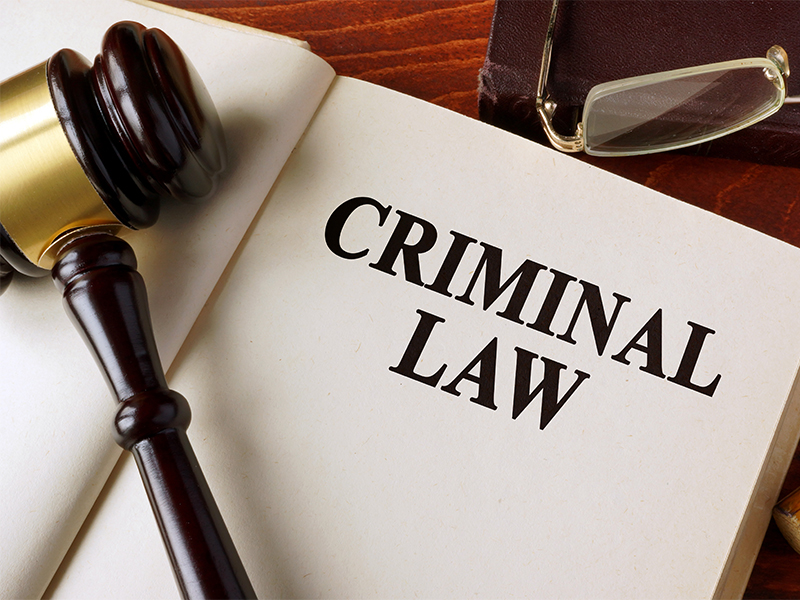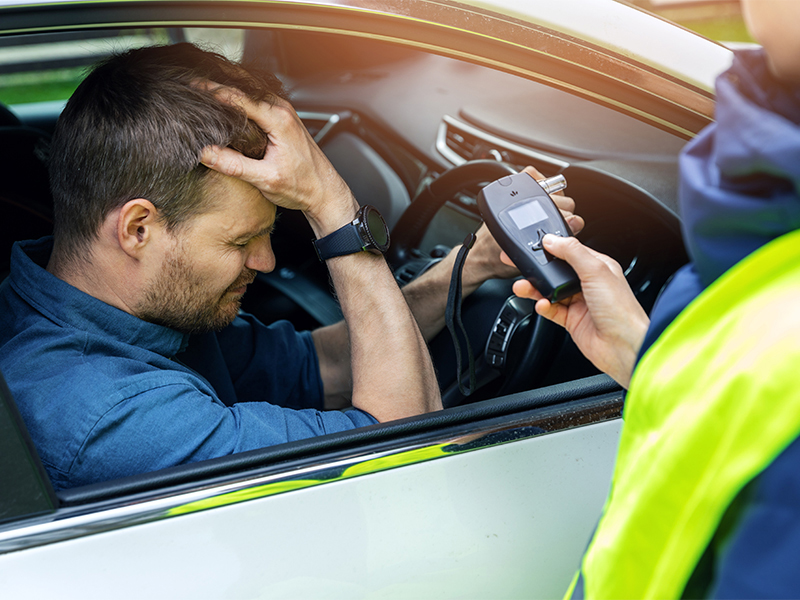The incredibly low rate of crime in Singapore is one factor that attracts many expats to live here. But harsh criminal law sentences, including the death penalty, mean that it’s not a place to step out of line. Here we speak to criminal lawyers for their advice on common offences and issues arising for expats who fall foul of the law – including white collar crime, sex and drug offences, driving offences, juvenile crime and more.
White collar crime in Singapore
KALIDASS MURUGAIYAN, lawyer and founder of Kalidass Law Corporation, is a seasoned litigator with years of experience dealing with criminal matters. As a criminal law specialised practice, the firm has defended many expats over the years accused of crime in Singapore.

What is white collar crime?
White collar crime covers a broad range of commercial crimes ranging from cheating and forgery, to insider-trading, market rigging, fraud, corruption and money-laundering.
What are the penalties for white collar crime in Singapore?
It’s a serious offence in Singapore and in most cases attracts a jail sentence. In deciding on an appropriate sentence, the Courts would look at factors such as (among other things) the amount involved, the involvement of financial institutions such as banks and insurance companies, and the vulnerability of the victims. Cases of transnational money laundering usually attract heavier custodial terms.
What should you do if you are called up for investigation?
The most important thing to do is to seek representation by a criminal lawyer. For most people, such an experience would be their first. The intricacies of white collar crime in Singapore mean that certain offences can be proven if the suspect confesses to having suspicion that there was illegal activity involved.
In the case of money laundering, for example, an offence might be made out if a person continued with a transaction despite the presence of red flags. There’s no need for the person to know for a fact that the origins of their funds are borne out of illegal activity. So, the best advice is to be careful, cautious and conservative.
Kalidass Law Corporation
#23-06 SBF Center Singapore, 160 Robinson Road
6345 5001 | daslaw.com.sg
Sex and drug crime in Singapore
Eugene Thuraisingam LLP is a premier law firm dedicated to dispute resolution, international arbitration, and criminal defence litigation. CHOOI JING YEN, partner and criminal lawyer at the firm, has secured acquittals in several criminal trials, including rape and drug trafficking cases.

Which laws cover sex offences in Singapore?
Singapore’s criminal laws on sex offences are mostly contained within the Penal Code. The exception to this is for offences relating to prostitution and pimping, which are covered by the Women’s Charter.
Most expats have heard of outrage of modesty – but what actually is it?
We often see outrage of modesty accusations after a client has gone for a night out drinking or partying at a club. Sometimes there may be ambiguity or a misunderstanding over whether advances are welcomed. It’s typical for there to be little objective evidence in such cases. Therefore, much will depend on how the initial police statement is recorded.
Is there any truth to the widely held belief that prostitution is legal here?
Commercial sex is not a crime in Singapore as long as the paid party is above the age of 18. There is a duty on the paying party to perform an identity check; ignorance is not bliss as it’s not accepted as a defence. It’s always illegal to have sexual intercourse with a child under 16 – this can either be prosecuted as the offence of sexual penetration of a minor, or the offence of rape which can carry a maximum penalty of 20 years’ imprisonment and caning.
We’ve seen ‘peeping Tom’ cases in the press – are they on the rise?
There has been an increase in the number of voyeurism cases, especially on public transport or the surreptitious taking of up-skirt videos on escalators. Such acts are usually discovered when suspicious activity is reported, and the offender’s phone seized. Depending on the extent and frequency of the offending before the arrest, a conviction usually leads to imprisonment sentences running into months.
Tell us about drugs and the death penalty in Singapore.
The drug laws here are harsh and strictly enforced. One statistic suggests that approximately 90 percent of the inmates in prison in Singapore are drug offenders. Trafficking of drugs above prescribed quantities is met with the death sentence. Money does not need to change hands for drug trafficking to be committed. It’s an offence simply to pass drugs to another person, even if gratuitously. Offenders are not usually prosecuted unless the police have been able to seize the actual physical drug.
Drug consumers are typically sent to the drug rehabilitation centre for periods between six and 18 months. This is provided they admit the consumption once confronted and commit no other offence (such as trafficking).
Singapore’s unique extra-territorial law makes it illegal for its citizens and permanent residents to consume drugs overseas. Interestingly, this does not apply to foreigners or other types of work permit holders.
Eugene Thuraisingam LLP
#07-06 The Adelphi, 1 Coleman Street
6557 2436 | thuraisingam.com
The impact of criminal charges on your life as an expat
Quahe Woo & Palmer LLC has an established and highly experienced criminal law practice that handles an extensive scope of criminal defence cases. Criminal investigations in Singapore can have serious consequences for foreigners. This is something that SUNIL SUDHEESAN, criminal lawyer and head of the criminal department at Quahe Woo & Palmer LLC, knows only too well after representing many expats over the last 18 years.

What bail-related issues are likely to cause problems?
While bail serves the simple purpose of securing the attendance of an accused person in court or for investigations, it may cause significant disruptions to an accused person’s life. The main bail-related issues which may be problematic for accused persons are:
- Finding a bailor who meets the eligibility requirements and is willing to provide security. For bail amounts above $15,000, the bailor is required to provide cash or cash equivalents such as savings accounts.
- Surrendering of travel documents and needing to obtain permission to travel out of the jurisdiction.
- Dealing with unfair accusations that you may be a flight risk. In extreme cases, bail can be withheld at the investigation stage.
What happens if (god forbid) an expat is convicted of a crime in Singapore?
Leaving aside the obvious effects of conviction such as fines and jail terms, a criminal conviction may also carry with it the following consequences:
- You will have a criminal record if the conviction is for a crime listed in the First Schedule of the Registration of Criminals Act, although this record may be spent after a period of time.
- You may have to declare that you have been convicted in a court of law when asked by governmental agencies, regulatory authorities and/or potential employers.
- Foreigners working in Singapore may have their employment passes cancelled and/or be deported. Entry bans may be imposed as well.
If you are charged or investigated for an offence in Singapore, it’s crucial that you appoint an experienced criminal lawyer who can help you navigate the entire process from the beginning.
Quahe Woo & Palmer LLC
#02-02 Haw Par Centre, 180 Clemenceau Avenue
6622 0366 | qwp.sg
Juvenile crime and the sentencing of minors
Fortis Law Corporation is a boutique private client law firm serving high-net-worth clients, many who are business owners and entrepreneurs. It also has a strong team providing support and expertise in navigating the complexities of civil and criminal litigation. Senior Associate, EUNICE CHUA is part of this team and has some valuable insights on juvenile crime and the sentencing of minors.

What are the main crimes that youths in Singapore are charged with?
Young offenders are defined as individuals below age 21 at the time of commission of the offence and at the time of sentencing. Some common offences that young offenders may be convicted of are those under the Penal Code and under the Moneylenders Act. These include theft, vandalism, drug-related offences and mischief.
How are juvenile offenders viewed in the eyes of the law?
The legal system in Singapore treats juvenile offenders differently from adults. The main sentencing consideration for young offenders is rehabilitation. This is because youths may not have the full cognitive maturity of adults at the time of the commission of the offence, and they are still in the formative years.
The chances of reforming young offenders are higher. They are generally more receptive towards a sentencing regime that guides them on the right path.
What types of rehabilitative sentences are usually given to minors?
The first type of rehabilitative sentence given to those under 21 is probation. The offender will be supervised by a probation officer in the community for a period between six months and three years. Electronic monitoring or curfews may also be imposed.
Secondly, a minor may be sentenced to reformative training (RT). For this type of punishment, the offender will be detained in a RT Centre for a minimum period of six or twelve months. After the detention period, they’re subject to supervision in the community. The total period of detention and supervision may extend up to 54 months.
The third type of punishment are community-based sentences. These include Short Detention Order, Day Reporting Order, Community Service Order, Community Work Order and Mandatory Treatment Order. The length of these orders will be determined by the severity of the offence.
Fortis Law Corporation
#23-92 The Central Office Tower 1, 8 Eu Tong Sen Street
6645 4508 | fortislaw.com.sg
Driving offences in Singapore
IRB Law LLP is a full-service law firm offering the full breadth of legal services to private individuals and businesses of all sizes. Founded in 2012, it has grown organically to over 50 employees. Aside from family law, it also has a strong reputation for corporate and criminal law services. A. MEENAKSHI is a criminal lawyer with the firm and deals with driving offences for expats on a regular basis.

What are the key offences that drivers can be charged with in Singapore?
The majority of driving offences are governed by the Road Traffic Act 1961 (“RTA”). Many offences that are seen in court are for reckless or dangerous driving (s 64 RTA), driving without due care or reasonable consideration (s 65 RTA), and drink driving (s 67 RTA).
If convicted of a driving offence, what sorts of sentences can be given?
The current penalties range from a fine to a jail term, a disqualification order from driving all classes of vehicles (“DQ”), and caning in some cases. When deciding on the penalty, the court will consider the exact charge and the seriousness of the offending. The seriousness of the offending is dependent on the following list of non-exhaustive factors:
- Whether the offender is a first-timer or a repeat offender;
- The level of harm caused. For example, if there was an accident, the extent of the property damage and/or personal injury;
- The level of culpability of the offender. This includes the manner of the offender’s driving – whether he/she was speeding, driving against the flow of traffic, or weaving through the lanes; and
- The level of alcohol found in the offender’s breath or blood in drink driving offences.
What’s the current trend of sentencing in Singapore for driving offences?
The penalties for traffic offences have only gotten harsher over the years. In particular, the 2019 amendments to the RTA have increased the maximum penalties an offender faces for traffic offences.
If you’re facing a traffic offence charge, it’s best to seek legal advice on the potential sentence you are facing, given the various permutations of a traffic offence.
IRB Law LLP
6298 2537 | irblaw.com.sg
Now you have the lowdown on crime in Singapore and criminal lawyers, why not learn more about how to apply for PR?
For more helpful tips, head to our Living in Singapore section.





